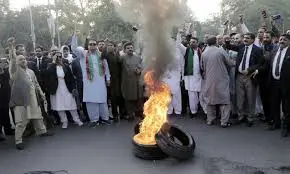Supreme Court upholds transfer of high court judges as constitutional and legal
The Supreme Court on Thursday issued a 55-page detailed judgment in the judges’ transfer and seniority case, declaring that the transfer of high court judges is in line with the Constitution and the law.
The verdict, authored by Justice Muhammad Ali Mazhar, stated that decisions regarding the transfer of judges fall squarely within the domain of the judiciary.
For the purpose of determining seniority, however, the matter is referred to the President of Pakistan.
The court disposed of petitions filed challenging the transfers and seniority of judges in Islamabad High Court, ruling that the process was constitutional.
It recalled that five IHC judges had earlier moved the Supreme Court to challenge the legality of their transfers and seniority.
According to the written judgment, Article 200 of the Constitution grants the President the authority to transfer judges, but such transfers cannot take place without the judge’s consent and prior consultation.
The ruling emphasized that judicial opinion holds primacy in the process and that transfers do not undermine judicial independence.
The court also observed that no evidence of mala fide intent or retaliatory action was established, affirming that the transfers were carried out constitutionally and lawfully.
The judgment clarified that Section 3 of the Islamabad High Court Act, 2010, does not impose any restriction on transfers, nor was the principle of provincial representation violated.
It added that the President is responsible for determining a judge’s seniority and for deciding whether the transfer is temporary or permanent, based on service records.
The bench further noted that the Islamabad High Court Bar had withdrawn its petition against the transfers, acknowledging that it did not qualify as a public interest matter.
However, since the notification of transfer did not specify whether the move was temporary or permanent, the court referred the matter back for clarification.
The verdict underlined that consultation in transfers is always conducted with the judiciary itself, and such transfers cannot be construed as fresh appointments.
Background
On June 19, a five-member constitutional bench of the Supreme Court, by a 3-2 majority, had upheld the transfers of three judges to the Islamabad High Court, dismissing petitions filed by five IHC judges.
The majority judgment authored by Justices Muhammad Ali Mazhar, Shahid Bilal Hassan, and Salahuddin Panhwar held that under Article 200, the President is empowered to transfer a high court judge from one court to another.
The ruling clarified that this authority is distinct from appointments under Article 175 and that transfers should not be conflated with appointments.
The bench noted that assuming all judicial positions must be filled solely through the Judicial Commission of Pakistan would run counter to the framers’ intent.
Transfers, it said, are governed by a separate constitutional provision independent of the Commission.
The court had also directed the President to issue an immediate notification clarifying whether the transfers were permanent or temporary, and to determine seniority after reviewing the judges’ service records.
Subsequently, on June 29, 2025, the President declared Justice Sarfaraz Dogar as the most senior judge of the Islamabad High Court and confirmed the transfers of Justice Dogar and two other judges as permanent.
On July 1, the Judicial Commission of Pakistan, chaired by Chief Justice Yahya Afridi, approved Justice Sarfaraz Dogar as Chief Justice of the Islamabad High Court, Justice Junaid Ghaffar as Chief Justice of the Sindh High Court, Justice Atiq Shah as Chief Justice of the Peshawar High Court, and Justice Rozi Khan as Chief Justice of the Balochistan High Court.
The Ministry of Law issued the relevant notifications on July 7, and the four judges were sworn in as chief justices of their respective high courts on July 8.
Meanwhile, the Lahore High Court Bar Association and the Lahore Bar Council filed intra-court appeals challenging the Supreme Court bench’s decision on the transfers and seniority.
The petitioners argued that the ruling contradicted the Constitution and established judicial precedents, stressing that a recognised procedure already exists for determining judicial seniority and that assigning this task to the President has no constitutional basis.
They urged the court to strike down the June 19 order of the five-member bench and to suspend both the decision and all consequential actions until a final judgment is reached on the appeals.
For the latest news, follow us on Twitter @Aaj_Urdu. We are also on Facebook, Instagram and YouTube.






















Comments are closed on this story.